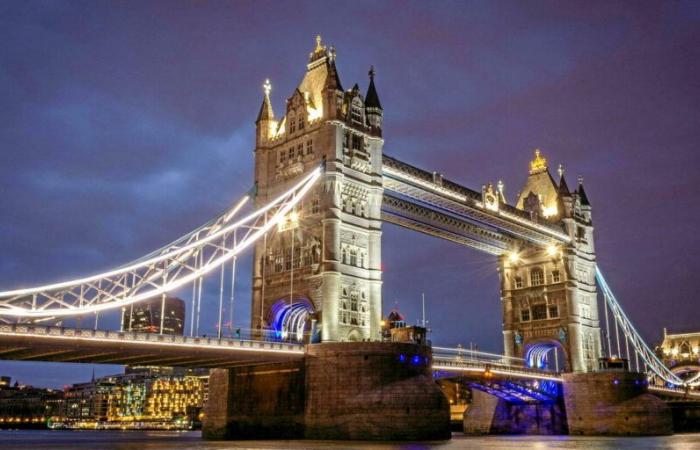CEvery week, journalist Catherine Fruchon-Toussaint presents the show on RFI Literature without borderswhich allows us to travel around the world through the grace of books. A fine connoisseur of letters and particularly detective fiction, which she loves, a sagacious interviewer, an outstanding reader, she highlights the unexplored parts of a planet as fascinating as it is mistreated, as attractive as it is damaged, through great fiction and voices that carry them.
Every Wednesday at 4 p.m.
Receive the cultural news of the week not to be missed as well as Surveys, decryptions, portraits, trends…
Merci !
Your registration has been taken into account with the email address:
To discover all our other newsletters, go here: MyAccount
By registering, you accept the general conditions of use and our confidentiality policy.
The legendary editions of Le Masque have entrusted him with the reins of their new collection, “Le Tour du monde en thrillers”, which explores the world in twelve titles, from Ruth Rendell's London to Charles Haquet's Japan, from Sonia Cadet's La Réunion to Beijing by Charlotte Cahné, via Iraq by Agatha Christie. “Discover the other side of the postcard” is the ambition of this beautiful collection of pocket books, which highlights unjustly forgotten titles from the spectacular collection of Le Masque. Catherine Fruchon-Toussaint’s favorite? She loves them all, obviously, but recommends Chewing-Gum et Spaghetti by Charles Exbrayat, published in 1960, as funny as it is captivating, which reveals the underbelly of the Mussolini era. Have a good trip !
The Point: what is the objective of this collection?
Catherine Fruchon-Toussaint :“Around the World in Thrillers” aims to open up all horizons, geographical and literary. Even if they are all detective novels, the books are societal, dark, they say a lot about the countries in which they take place. We wanted to represent all continents and all genres: there are humorous novels, like Chewing-gum et Spaghetti by Charles Exbrayat, which takes place in Verona, more political, like Beijing Blues by Charlotte Cahné, which takes place in China and evokes the one-child policy and its consequences, also more festive, like Miss Gibson's Blues by Linda Barnes, camped in Boston.
It is through its depths, its crimes, its dysfunctions that we understand a society.
The idea is to infiltrate a country through a detective story, because we know very well that we need to know the other side of the postcard. It is through its depths, its crimes, its dysfunctions that we understand a society.
How did you make your choice?
I immersed myself in the Masque catalog, rich in more than 3,000 titles. I wanted to identify texts that are less known today, but whose literary quality and relevance in terms of geopolitics remain essential. We find some somewhat forgotten nuggets there: I’m thinking of Boy Dakarby Laurence Gavron, which takes place in Senegal. Very few crime novels were set on the African continent at the time she wrote, in 2008. Since then, there has been a very productive new emerging movement. His novel remains fundamental.
What do these thrillers tell us today?
Lots of things! Even those that weren't written decades ago, like Meet in Baghdadby Agatha Christie, which might seem a little “old-fashioned” and is not the best known of her texts. He tells us about a post-World War II Iraq and tells us a lot about the geopolitics of the region. The tensions between countries, the importance of espionage, always underground: even today, this text is relevant. You should also read The Eye of Darumaby Charles Haquet, a historical novel from the Meiji era, which tells the story of the end of the samurai and says a lot about the construction of Japanese society as it is today.
Literature allows us not to be a “basic tourist”
If we do not take the bridge of literature to immerse ourselves in the underground, less visible layers of a country, we are missing out on that country. Literature allows us to not be a “basic tourist”, and if we don’t know the country, to want to go there.
Where to start?
I love them all. Maybe Chewing-gum et Spaghettiby Charles Exbrayat, published in 1960. He is a key author of the Masque collection, which I had passed by. I had completely obscured both the comical face from this pen, and under the cover of a quarrel between a commissioner Romeo, typically Italian, typically Veronese, with an American cop, his very fine analysis of the period of the Second World War, of fascism. Who did what under Mussolini? I find this fascinating. I like this book because it is light, entertaining, well written, with a deep subject.
To Discover
Kangaroo of the day
Answer
Where will you take us next?
I spotted around a hundred titles in the Masque catalogue, set in Finland and Canada, by authors who urgently need to be rediscovered!






